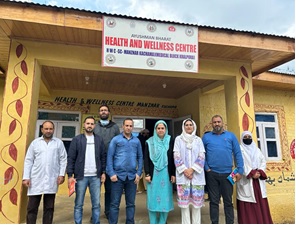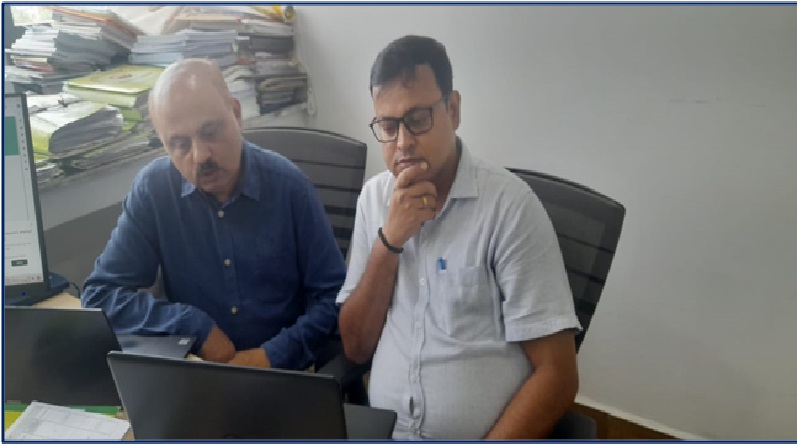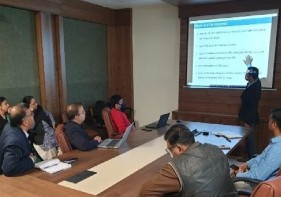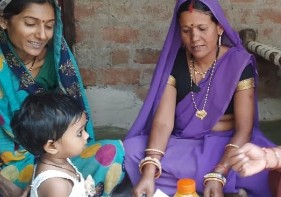Making News
Assessment of Ayushman Arogya Mandirs (AAMs) in the UT of J&K
India is committed to achieving Universal Health Care (UHC) for all by 2030. In 2018, the Government of India renewed its commitment to UHC by launching Ayushman Bharat Yojana signaling the shift from selective to comprehensive primary health care. The Government of Jammu and Kashmir has set a target of operationalizing 3,444 AAMs (including SHCs & PHCs) and currently 2,410 AAMs under NHM are functional in all the 20 districts of Jammu and Kashmir.
The range of services to be provided at the Ayushman Arogya Mandirs expanded from the existing packages of Reproductive, Maternal, Newborn & Child Health & Adolescents, and Communicable Diseases, with the incremental addition of services for Non-Communicable diseases, Oral health, ENT, Ophthalmology, Mental health, elderly and palliative care and management of emergency and trauma cases. These health centers are also strengthened to provide an expanded range of free essential drugs, diagnostic services and teleconsultation services. Health promotion activities through initiatives like Yoga, Fit India and Eat Right campaigns by following an annual calendar of activities are also being undertaken.
National Health Mission (NHM), Jammu & Kashmir (J&K) with technical support from its lead development partner i.e. Norway India Partnership Initiative (NIPI) conducted assessment of 135 Ayushman Arogya Mandirs (90 SCs and 45 UPHC/PHCs) located across 45 blocks in 20 districts of the UT of J&K from 01st - 07th May, 2024. For collecting the data, ten teams of assessors (5 for Jammu division and 5 for Kashmir division) were constituted, each team comprised members from Directorate of Health, National Health Mission and Development Partner agency Norway India Partnership Initiative (NIPI).
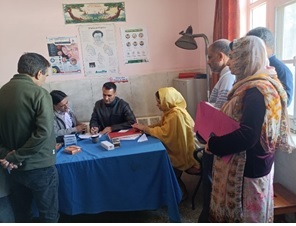
For ease of data collection and compilation, an Open Data Kit (ODK) application developed by Norway India Partnership Initiative (NIPI), based on the structured checklist derived from CPHC guidelines.
The assessment looked into key areas such as infrastructure, equipment, human resource and their training as per CPHC guidelines as well as availability of drugs and consumables, diagnostic services, service provision and IT systems.
Before deputing to the field, an orientation training was given to all the team members for using the ODK application. In addition, a WhatsApp group of all team members was created to monitor the teams and for providing online support.
NIPI team also provided technical support in the analysis of the data and documentation of report.
